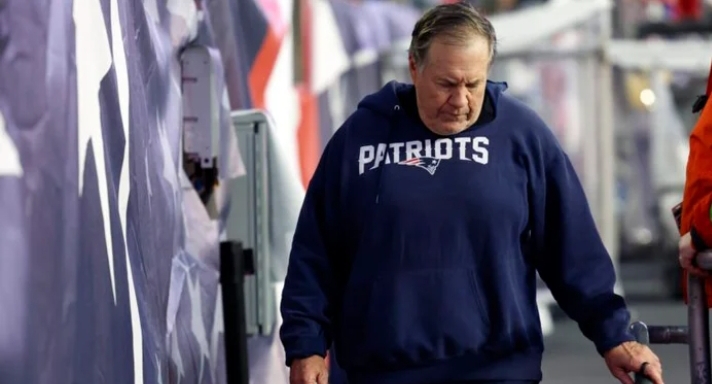One reason is the way Belichick has handled the Patriots’ quarterback situation in recent years.
There have been eight recent head coaching jobs in the NFL.They’ve all been busy in recent weeks, and none of the new coaches are named Bill Belichick.
According to The Athletic’s Jeff Howe, there are several reasons for this. Howe detailed the three biggest in his latest column. “Several sources around the league cited three main reasons,” Howe wrote. “There have been growing concerns about Belichick’s mismanagement of the Patriots’ quarterback situation in recent years, his desire to maintain complete control of football operations and the coach’s ability to handle this generation of players,” Howe said.
He said there was no succession. plan for Tom Brady, the only quarterback with seven Super Bowl victories remaining as a free agent, and New England ended up signing Cam Newton to a one-year extension. The following year, the Patriots took Mack Jones in the first round of the draft, and things quickly went downhill for the former Alabama product.Working with three different offensive coordinators in his first three seasons in the NFL was not an ideal situation for Jones or the young quarterback.
Howe said Belichick’s handling of the situation was “totally criticized.” When Jones returns next season, he will be the fourth coordinator in four seasons. Bill O’Brien left to coach Ohio State. Howe also said his sources believe Robert Kraft could convince Belichick to stay if the coach agrees to some changes in the way New England makes personnel decisions.
“League sources believed Kraft had convinced Belichick to stay one more season,” Howe wrote. While the coaches have committed to changing some strategies with personnel, roster construction and offensive approaches, but Belichick is comfortable with a certain approach and doesn’t want to bend that far, Howe said he wants it to be the way they are coached his players. That has changed, and there are concerns about whether Belichick’s style can connect with today’s players.”
The new generation of managers don’t have the authority complex of asking the players to do everything because they’re the boss,” Howe said. “Athletes want to know why they’re doing what they’re doing, whether it’s a weightlifting regimen or a schematic approach, and coaches who can get their message across in that way are becoming more and more attractive.

